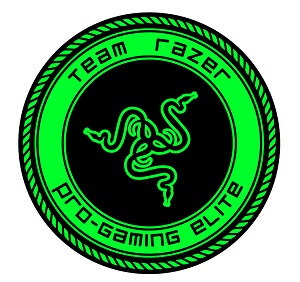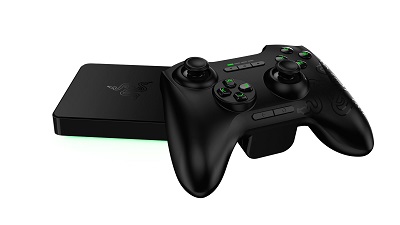eSports, virtual reality and the cloud

HEXUS: What role do you envision for Razer in the growing world of eSports and competitive gaming?
MLT : I think it’s in our DNA, eSports is in our DNA. We are one of the first sponsors of eSports, we are one of the pioneers of eSports, we remain one of the biggest sponsors of eSports when we don’t need to. Everybody in eSports knows that we are probably the biggest brand in eSports right now, if you think about it. Whether it’s console or PC, we are the biggest brand. We don’t need to continually sponsor this but we do it because it’s our responsibility to bring eSports to the next level. We think we have a bit of a duty to the gamers of the world to continue pushing eSports to the forefront so I think we look at it as a prime mover and as a pioneer of eSports.
The team Razer brand, to be candid, we’re seeing a lot of people apply to the brand to be a team Razer team mainly because they like the fact that we stand for many of the aspects of eSports that resonate with them. We don’t pay users to use our products, we don’t need to. Often, teams already use Razer products and they come and approach us because they want to play under the Razer brand. We like to pick new teams to bring to the international level. We like to find up-and-coming teams to bet on and to help to get to the next level. That’s what we do, it’s part of our sacred duty as one of the biggest players in the eSports community.
HEXUS: Switching gears, is the rise of virtual-reality headsets inevitable? Should the industry be careful in delivering a premium experience from the get-go, because a sub-standard experience might put consumers off, like it did with 3D?
MLT : We’ve actually made a massive bet on this and have been investing in VR for a very long time. Like you’ve mentioned we think there’s a huge potential in VR but we know that there’s a small-yet-deep gulf between a horrible VR experience and a phenomenal VR experience and that’s what we are most worried about. We’ve seen VR come and go, many times, because that gulf has not been crossed, it’s a chasm of sorts that can’t yet be traversed. Something we’ve done is something most companies would not have done, we’ve taken all our IP, hardware and software alike, and we’ve made it completely open.
We’re not just one of the members of OSVR (Open Source Virtual Reality), we are one of the founders of OSVR and it’s completely open. What I’m most excited about is that we have about 50 or 60 colleges and universities that have come on board; we’re seeing over 100 of the top VR companies coming under the OSVR umbrella. Today the OSVR umbrella is the world’s largest open-source consortium or movement, and we think it’s going to take VR to the next level. To be clear, this is not a competitor with Oculus or with Valve; Valve is under OSVR also; we see this as the best opportunity for anyone to really make sure that you get a phenomenal experience and that’s why we’ve actually taken all the work we’ve done, all the money and all the research and we’ve made it completely open source.

HEXUS: At Computex 2015 a number of tech companies expressed interest in porting the PC into the living room. Do you think that high-quality gaming requires dedicated hardware in the living room, or has streaming become good enough for it to be run remotely?
MLT : Well, I see it in two fronts. I see silicon getting more and more powerful in smaller form factors, and that’s why we came up with the Forge TV. You’re going to get a lot of great experiences with the Forge TV because the ARM chips today are barely behind what’s happening on x86, so you’re seeing lots of hardcore games consider it, but it’s just the platform hasn’t been wide enough for the gamers to push the pixels on that.
We’re betting that’s going to get cheaper, it’s going to get faster, and it’s going to be able to run in a much smaller form factor - that’s one thing we’re doing with Forge TV. But streaming is something we’re definitely excited about in terms of local streaming, like a gaming PC across to your living room for example, and in the future from the cloud, directly through the pipe. So I think I’m excited for both ends... and if either end wins we’re going to be there.
HEXUS: Following on from this, what are your thoughts on server-side rendering, like Nvidia Grid, and do you think that the cloud will play a bigger role in Razer's future strategy?
MLT : I think it’s going to take some time. I was working with OnLive before they were known as OnLive, I’d given a lot of feedback back in the day - they were known as Rearden labs back then. When they showed it to me I was like, “holy s***, this really works”, I lunged across and pulled out the Ethernet because I didn’t believe that it was actually being streamed through Ethernet. It froze up and I was like, very cool! I think it’s very exciting but I think it’s a long way away, that’s my honest opinion. I think any gamer should be excited about it, every time I see a gamer being negative about new technology I go don’t be an LP vs. a CD kind of person. New technology is always exciting for us. Now bear in mind, of course, that some of it may not yet be mature enough for us to look at but definitely I think it’s the way of the future.
The problems are still bandwidth and latency. They haven’t even solved the latency between the cloud to the device much less the round trip. So you’ve got latency right now when you try and get the pixels across to the device but nobody’s even solved when you hit the controller on the device, you’ve got to get that round trip all the way back. There are very few companies that can solve that (Nvidia, perhaps? - ed) and we’re one of them because we own the end-to-end experience. It’s one of the things we look at all the time and that’s why I can say with some level of confidence that while it’s truly very exciting, it’s still some way away.
HEXUS - An easy one to finish, what is your favourite Razer product and why?
MLT : What is my favourite Razer product? Uh, I look at every single design and I think I don’t really have a favourite per sé. But if push came to shove I like the Blade primarily because it means a lot about what Razer is. Despite the industry and everyone telling us that nobody wants this and we just said the one core thing – we want it for ourselves, as gamers, and we made it. That’s truly what Razer is about - we design great products for ourselves and just coincidentally all of us are gamers.













